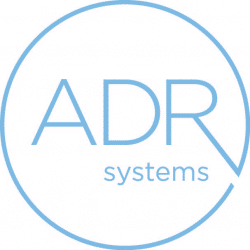When a personal injury litigator faces a multiparty case, there is more of everything. More parties, counsel, discovery, experts, time – everything is expanded. Mediation can be the best choice for settling these disputes.
For insight into why mediation is effective, we consulted Hon. William J. Haddad, (Ret.), senior meditator and arbitrator at ADR Systems, along with these experienced litigators: Glen Amundsen, partner at SmithAmundsen, Adria Mossing, partner at Mossing & Navarre, and Marc Taxman, partner at Taxman, Pollock, Murray & Bekkerman, LLC.
A mediation in an environment with multiple parties is different than a two-party dispute because settlements are multifaceted. This, along with the sheer number of counsel and parties, make multiparty matters much more complicated for the mediator and counsel.
“The mediator has, in some respects, enhanced power to bring the parties to settlement in these cases due to the complexities,” said Judge Haddad. “For this reason, parties must carefully select their mediator. The mediator should have experience with multiparty mediation and have the patience and backbone to bring all issues to resolution. Mediators must stay in control of the process at all times. It’s not for the faint of heart.”
Ms. Mossing echoes Judge Haddad’s assessment and believes “mediation is at its best in multiparty cases.”
She explained, “In these personal injury cases, there are often many defendants and it requires artfulness and finesse on the part of the mediator to get the defendants to begin the negotiation process. The mediator must fully understand all the parties’ interests and goals. Sometimes defendants may be squabbling amongst themselves or are reluctant to be the first to put up money. They do not want to be perceived as more liable or having more money than the other defendants. The plaintiff or plaintiffs may be focused on a number regardless of the advice of counsel or have unreasonable expectations. A skilled mediator manages and works this complicated scenario to move parties through the negotiation process.”
There are several benefits of using mediation for multiparty disputes.
Cost: The cost of discovery is huge in a multiparty dispute. Mediation can hold down these costs.
“Attorneys coming to mediation need to do enough research and have a good grip on the relevant facts of the case, so they can evaluate risk or exposure. Discovery should be targeted to filling in the gaps to hold down costs,” according to Mr. Amundsen. “Counsel should consider the actual value of learning all the facts in completed discovery.”
“If you conclude from the basic facts that your client has risk or exposure, with multiparty mediation you give your client or clients a say in the outcome – rather than turning the decision over to a judge or jury,” he explained.
Control: Mediation forces all parties to be in the same place at the same time. This allows for better control of the overall case.
From the defense perspective, another benefit of using mediation in multiparty matters is the ability to stay in more control of the number of other culpable parties. This requires solid preparation prior to mediation.
“Counsel must not only know the strengths and weaknesses of their case, but also those of the other defendants. They need to go to the other defense counsel to come up with a game plan and consistent strategy regarding extent of damages, plaintiff or plaintiffs’ comparative fault, strategy for a worker’s compensation lien (if there is one), among others,” said Mr. Amundsen. This is done in advance of mediation. “Cooperation is essential. In mediation, you don’t help yourself by dumping on the other defendants.”
Communication: Mediation offers many different opportunities for communication among the parties.
How participants will communicate in mediation is determined by the parties and their counsel. They may come together in a joint opening session or merely communicate through their mediator in the caucusing process. Their mediator might bring them together during the mediation process or talk privately to counsel or the parties individually, with permission of counsel.
“Mediation serves as a conduit for communication. It can be the first and only time in the history of a case that all of the right people are all together and are reachable at the same time,” said Mr. Taxman. “As a plaintiff attorney, certainly the economics of having all of the decision makers in the same place at the same time at mediation can provide a forum for resolving a case before trial.”
He notes, “Especially in multiparty cases, mediation anticipates that all parties set aside the time to familiarize themselves with the case and make themselves ready to negotiate a settlement. Communication is most effective if those with authority to settle a case are present at the mediation. Otherwise, it can be a waste of time. With the right people and the right mind-set, mediation can be an effective platform for gathering multiple parties and facilitating a settlement dialogue.”
Other Considerations: Confidentiality may be even more important in multiparty cases since there are so many individuals and issues involved.
“Confidentially keeps the proceedings from the public eye, and it keeps the parties’ negotiations private if the case does not settle and parties want to pursue a court action,” said Judge Haddad.
When you have three or more parties, the range of interests on each issue increases and settlement options are multifarious. With multiple parties, you can have multiple suits pending for years.
“Finality is another key benefit of successful multiparty mediation,” adds Judge Haddad. “With mediation, there is certainty and it ends the dispute among all the parties. With a trial and judgment, there could be an appeal and remand on appeal. The case might survive for much longer than anyone would like.”
Multiparty mediation saves time and money because parties can address a multiplicity of issues in one forum. It allows for more control over the process and the case and facilitates communication among the parties. For these reasons and more, multiparty mediation of personal injury cases is here to stay.
There are many benefits to resolving multiparty cases through mediation, and ADR Systems has the experienced neutrals and administrative support services to bring all parties to settlement.
To learn more about personal injury mediation at ADR Systems, click here.
To contact us, click here.
ADR Systems, It’s Settled.®





